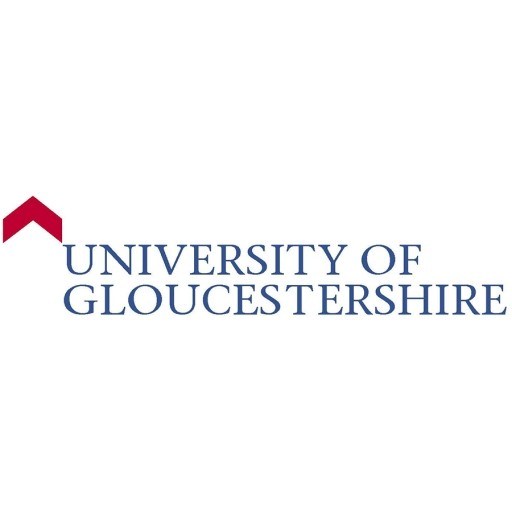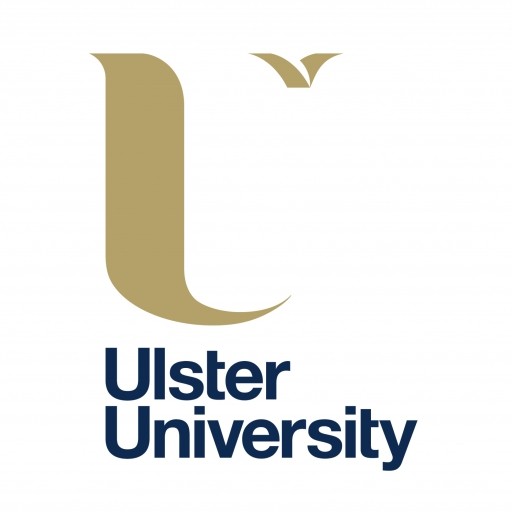Photos of university / #kingstonuniversity
The MSc Applied Geographical Information Systems at Kingston University offers a comprehensive and practical education in the use of geospatial technology and GIS data analysis. This programme is designed to equip students with advanced skills in collecting, managing, analyzing, and visualizing spatial data using the latest GIS software and techniques. Students will explore a wide range of topics, including spatial data management, remote sensing, cartography, spatial analysis, and the application of GIS in various sectors such as urban planning, environmental management, disaster response, transportation, and public health.
Throughout the course, students will engage in hands-on projects and real-world case studies to develop practical competencies that are directly applicable to industry demands. The programme emphasizes both technical expertise and critical thinking, preparing graduates to solve complex spatial problems and make informed decisions based on geographic data. The curriculum combines academic theory with professional practice, enabling students to understand the ethical and societal implications of GIS applications and data privacy issues.
Students will also have access to state-of-the-art GIS laboratories and software, allowing them to gain experience with industry-standard tools such as ArcGIS, QGIS, and others. The programme includes modules on GIS programming and web mapping, empowering students to develop customized spatial applications and spatial data infrastructures. Moreover, opportunities for internships and collaborative projects with industry partners enhance employability and provide valuable professional experience.
Career paths for graduates of this MSc programme are diverse, including roles in local government, environmental consultancy, transportation agencies, emergency services, research organizations, and technology firms. Kingston University’s strong network with industry ensures that students receive relevant training aligned with current market needs. The programme aims to produce highly skilled GIS professionals who can contribute significantly to applied solutions in a rapidly evolving digital and spatial data landscape. Upon completion, students will be well-equipped to pursue advanced research, consultancy work, or professional positions in the field of applied geographical information systems.
Applied Geographical Information Systems (GIS) at Kingston University offers students a comprehensive and practical understanding of spatial data analysis, digital mapping, and geographic information management. This programme is designed to equip students with the crucial technical skills needed to analyse complex spatial information and apply GIS technologies across various industries, including urban planning, environmental management, transportation, and disaster management. The curriculum combines theoretical foundations with hands-on practical training, enabling students to become proficient in industry-standard GIS software such as ArcGIS, QGIS, and others.
Throughout the course, students will explore core concepts including spatial data acquisition, data management and storage, remote sensing, cartography, and spatial analysis. They will learn how to collect, interpret, and manipulate diverse geographic data sources, including satellite imagery, aerial photographs, and geographic databases. Emphasis is placed on developing problem-solving skills through real-world projects and case studies, encouraging students to think critically about geographic issues and develop sustainable, effective solutions.
The programme also covers emerging trends and technologies within the field of GIS, such as web GIS, mobile GIS applications, and cloud-based spatial data services. Students will gain experience in designing and implementing GIS projects, from initial data collection to final presentation, enabling them to communicate complex spatial information clearly to stakeholders.
Kingston University's Applied GIS programme aims to prepare graduates for employment opportunities in both the public and private sectors. Graduates will be equipped to work in roles such as GIS analyst, urban planner, environmental consultant, or transportation planner. The course fosters a collaborative learning environment with opportunities for research, internships, and industry placements, helping students to build professional networks and gain valuable practical experience.
In addition to technical skills, the programme emphasizes critical thinking, ethical considerations, and innovative problem-solving in geographic information systems, ensuring that graduates are not only competent in using GIS tools but also capable of applying these skills to address societal challenges. By the end of the programme, students will possess a well-rounded skill set, ready to contribute effectively to the ever-evolving field of applied geography and spatial data analysis.
The MSc Applied Geographical Information Systems at Kingston University requires applicants to hold an undergraduate degree in a relevant field such as geography, environmental sciences, computer science, or a related discipline. Prior exposure to GIS technologies, spatial analysis, or programming can be advantageous but is not mandatory. Candidates should demonstrate a strong interest in geospatial data analysis and the application of GIS to solve real-world problems. Proficiency in basic computer skills and familiarity with spatial data formats are expected. Applicants whose first language is not English must provide evidence of minimum language proficiency, typically an IELTS score of 6.5 or equivalent, with no component below 6.0. The program emphasizes practical skills development, so a background in data handling, mapping software, and analytical techniques can support a competitive application. Candidates are advised to submit a personal statement outlining their motivation for studying GIS, relevant experience, and career aspirations. References should ideally highlight the applicant’s analytical abilities and suitability for postgraduate study. There are no strict work experience prerequisites but demonstrating engagement with GIS-related projects or employment can strengthen an application. The selection process assesses academic potential, motivation, and the capacity to undertake rigorous analytical work. The program encourages applicants from diverse backgrounds to bring varied perspectives to the field of GIS. Overall, prospective students should be prepared to engage in coursework that combines theoretical foundations with extensive practical training, including the use of industry-standard GIS software and tools.
The financing options for the Applied Geographical Information Systems (GIS) program at Kingston University are designed to provide comprehensive support to both domestic and international students. Tuition fees vary depending on the student's residency status and whether they choose full-time or part-time study modes. For UK students, the annual tuition fee generally falls within the range typical for postgraduate courses, with approximate figures around £9,250 per year. International students can expect higher fees, approximately £15,000 to £16,000 per year, reflecting the university's fee structure for overseas students.
Students are encouraged to explore various funding opportunities to support their studies. Kingston University offers a range of scholarships and bursaries for both home and international students based on merit, financial need, or specific criteria such as subject interest. These include postgraduate taught scholarships which can significantly reduce the financial burden. Additionally, students may be eligible for government loans or grants, particularly UK residents, such as Postgraduate Loans which can cover a substantial portion of tuition fees over a repayment period post-graduation.
Apart from scholarships and government funding, many students fund their studies through personal savings, part-time work, or family support. The university provides guidance and resources to assist students in finding part-time employment opportunities both on and off campus, helping to mitigate the financial costs associated with postgraduate study.
For international students, additional financing options include private loans, sponsorships, or international scholarships awarded by external organizations or partner institutions. The university’s international office provides detailed advice on various funding sources, visa requirements, and application procedures, ensuring students are well-informed.
In terms of payment plans, Kingston University offers flexible tuition fee payment methods, including paying in full at the outset or through installment plans. This flexibility assists students in managing their finances more effectively throughout their studies.
Students are also encouraged to explore external funding bodies, charities, and industry-specific grants that focus on supporting students in geographical and environmental sciences. Checking the university’s dedicated funding pages and consulting with the financial aid office can help students identify the most suitable funding arrangements for their circumstances.
Overall, the university strives to ensure that financial barriers are minimized, allowing students to focus on their academic and professional development in Applied Geographical Information Systems. Access to diverse funding opportunities, guidance on financial planning, and flexible payment options are core aspects of the university’s commitment to supporting student success in this specialized field.
Applied Geographical Information Systems (GIS) at Kingston University provides students with comprehensive training in geographic data analysis, spatial data management, and the application of GIS technology across various industries. The programme is designed to equip students with practical skills in using state-of-the-art GIS software and tools, alongside developing a strong theoretical understanding of geographic spatial phenomena. Throughout the course, students engage with a diverse range of topics, including cartography, remote sensing, spatial data acquisition, spatial analysis, and GIS programming.
The curriculum emphasizes the integration of geographic information systems into real-world environmental, urban planning, transportation, and resource management projects. Students learn to handle large datasets, perform complex spatial analysis, and generate meaningful visualizations to communicate geographic information effectively. The programme aims to bridge the gap between technical expertise and strategic thinking, preparing graduates for careers in government agencies, consultancy firms, environmental organizations, and tech industries specializing in location-based services.
Delivery of the course combines lectures, practical workshops, and project work, providing a balanced approach to learning both the theoretical and applied aspects of GIS. Kingston University employs experienced academic staff and industry practitioners to ensure that education remains current with evolving GIS technologies and industry standards. Students benefit from access to modern laboratories equipped with professional GIS software, including ArcGIS, QGIS, and remote sensing tools.
The MSc Applied Geographical Information Systems programme typically spans one year full-time or two years part-time, with options for dissertation or supervised project work to develop independent research skills. Entry requirements usually include a relevant undergraduate degree, with a preference for backgrounds in geography, urban planning, environmental sciences, or related fields. Graduates leave the programme well-prepared for employment in various sectors, with a portfolio of practical GIS projects and a thorough understanding of spatial data management and analysis.
Kingston University's strong links with industry partners and local government bodies offer students networking opportunities and potential for placements or internships. The programme aligns with current industry demands for skilled GIS professionals, particularly in areas focusing on sustainable development, smart cities, and environmental conservation. Overall, the MSc Applied Geographical Information Systems at Kingston University provides a robust foundation for those looking to advance their careers in spatial data science and GIS technology.







